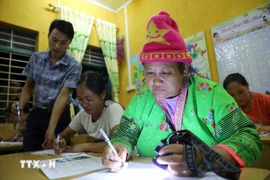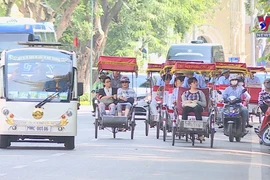WeFit is a well-known gym-sharing application that helps gyms run more efficiently. With a smart phone, users can enjoy the benefits of many different gyms, at a time of the day which fits their schedules best.
Nguyen Khoi, WeFit CEO & Founder said his company utilise abundant resources of every gym within his WeFit network and help them save more than 20% to 30%.
WeFit is just one of many businesses adopting the sharing economy model. This business model makes use of a commodity or service and makes profit using online transactions. Bearing in mind the motto “Mi casa es su casa, as long as you pay for it”, the sharing economy is becoming popular among young entrepreneurs.
"The advantages of this economic model is to save resources for society, everyone can benefit from this model, especially users," said Lê Xuân Sáng,Vice president of Vietnam Institute of Economics.
In Vietnam, Uber and Grab are prime examples and they are well-known within the sharing economy community. While the advantages are evident, so are the obstacles. These businesses are direct competitors with traditional businesses, for example Uber and Grab versus traditional taxi companies.
Mr Phan Duc Hieu, Vice President of Central Institute for Economic Management told VNA whether it was Grab or any other kind of business models, it was crucial that they raise the awareness and provide enough knowledge for State-owned agencies on the impact of 4.0 Industry.
In the past, the emergence of the sharing economy in the US has proven to be successful. In terms of the sharing economy model, Vietnam can turn obstacles into opportunities by using this business model wisely.
It is essential that Vietnam’s government agencies build the legal framework to manage the development of technology and creative businesses./.



















